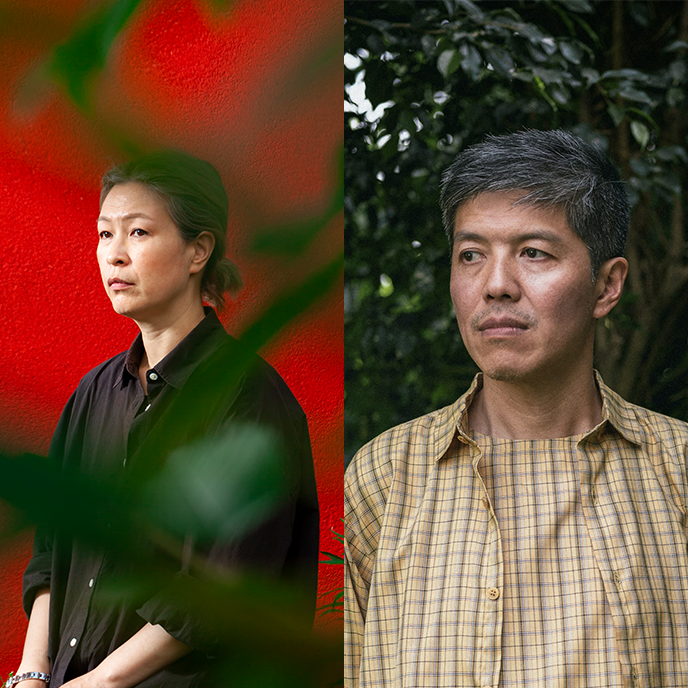Eco-motion: A Conversation
Talk
The conversation between John Tain and Haegue Yang revolved around the conceptual, cultural, and environmental themes informing Yang’s artistic practices, particularly her works exhibited at the Lahore Biennale. Her talk was attended by 140 guests at the Lahore Museum Auditorium on 2nd November 2024. Haegue also discussed her use of materials such as mulberry paper and connected it to broader narratives of human interaction with nature and cultural heritage.
The dialogue opened with John introducing the context of the Lahore Biennale, emphasizing its focus on ecology and sustainability, and situating Yang’s contributions—Spring Sailors in Shalimar Gardens and Gleaner’s Notebook at Pak Tea House—within this framework. Yang elaborated on her title “Eco-Motion,” which reflects a personal and collective sense of ecological loss as a motivator for engagement with the environment.
She delved into the thematic continuity in her work, particularly her fascination with air, wind, and their cultural and functional dimensions. She recounted her exploration of traditional wind towers in Gulf architecture, noting their ingenuity in passive cooling and their role in shaping local aesthetics and culture. Similarly, her works in Lahore reflect on architectural and ecological practices from the Mughal era, such as the integration of water and air for climate regulation in Shalimar Gardens.
Haegue reflected on choosing materials, particularly mulberry paper, which she also connects to shamanistic rituals and marginalized craft traditions. Her engagement with this medium reflects her broader inquiry into the intersection of spirituality, labor, and artistic creation.
Finally, the discussion tied Haegue’s works to Lahore’s cultural context, particularly the celebration of Basant. Spring Sailors integrated this folk tradition with imperial aesthetics, exploring how shared practices like kite flying transcend cultural and temporal boundaries. Through her work, she challenges rigid distinctions between sacred and secular, art and craft, and the local and the universal.
Haegue Yang lives and works in Berlin and Seoul, and is a professor at the Städelschule, Frankfurt. Her work in sculpture, collage, and installations frequently engage not just sight but also touch, sound, and even smell, while highlighting issues such as labor, migration, and displacement. She has had solo exhibitions at the Leeum, Seoul (2015), MCAD Manila (2020), Pinacoteca de São Paulo (2023), and the Hayward Gallery (2024)
Location: Lahore Museum Auditorium
Date: 2nd November 2024

